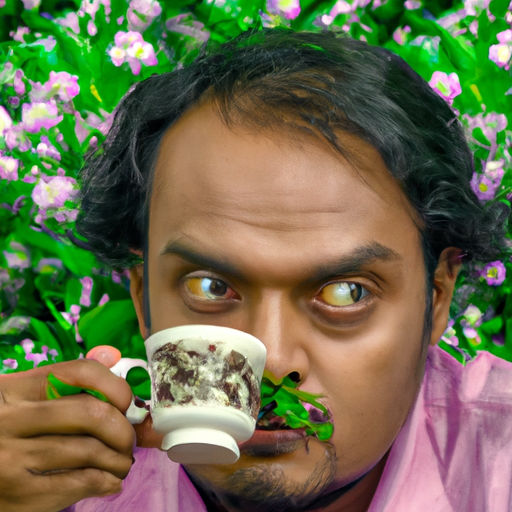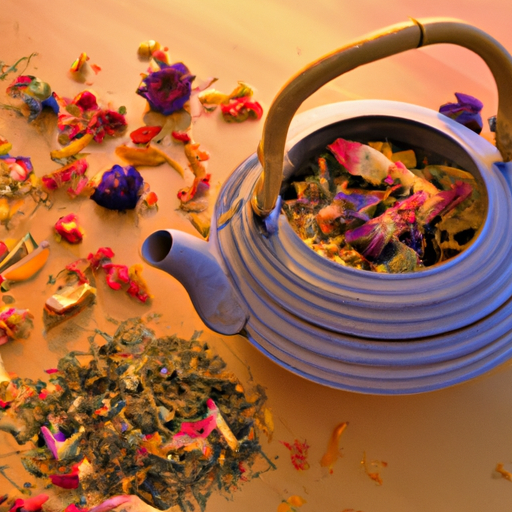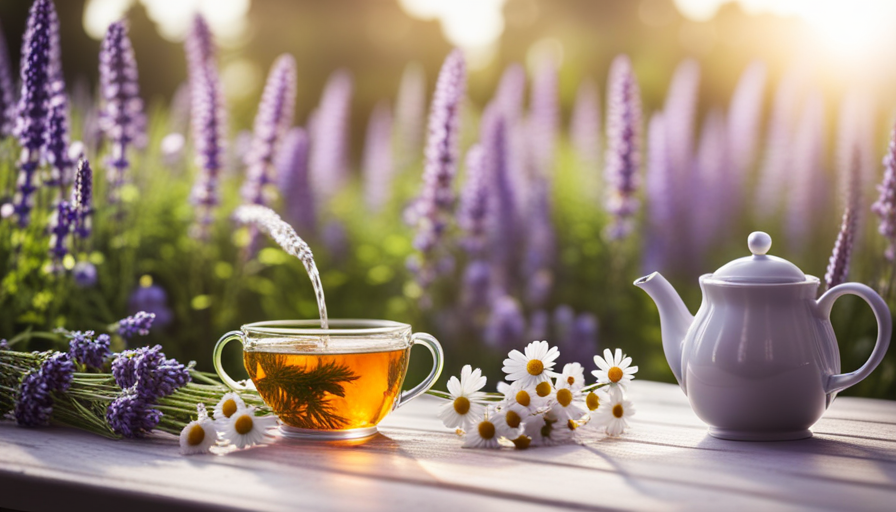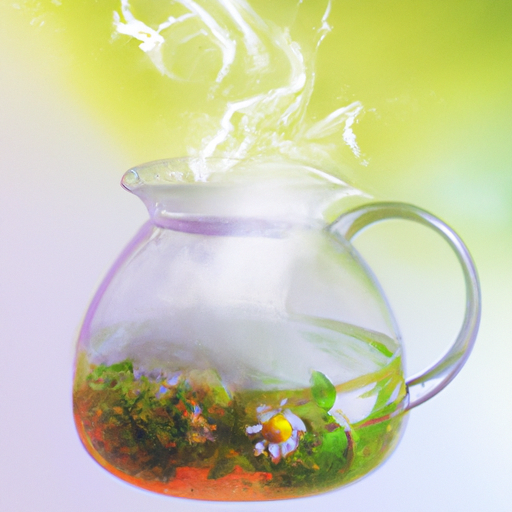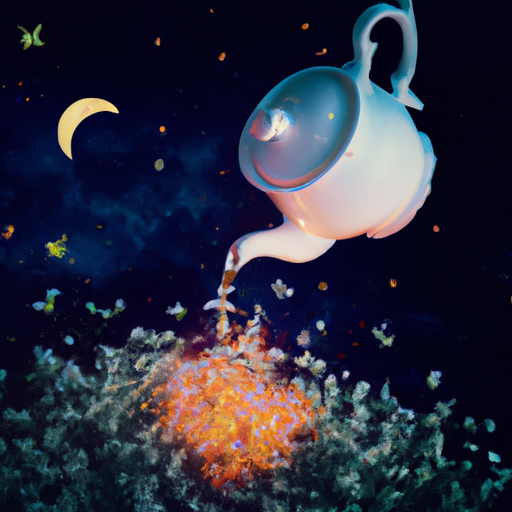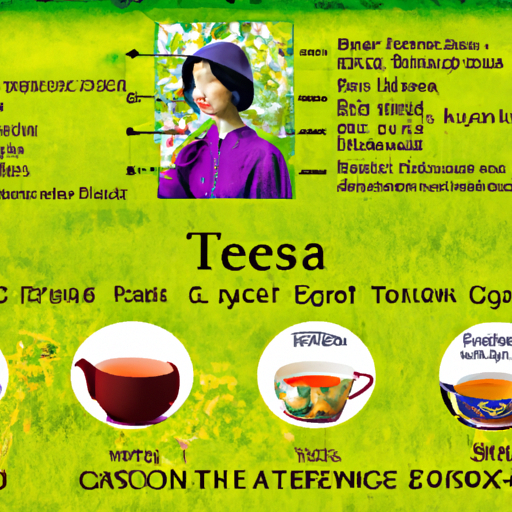Ever thought about why herbal tea doesn’t quite hit the spot for your taste buds?
It’s like sipping on a cup of disappointment, as if the flavors were plucked from a garden and steeped in mediocrity.
As someone who has explored the vast world of herbal teas, I understand the perplexing nature of this aversion.
There are several factors that may contribute to your dislike, ranging from personal taste preferences to cultural influences.
Perhaps you find the herbal flavors overpowering, or maybe it’s the texture and mouthfeel that just doesn’t sit right with you.
It could even be a lack of familiarity or negative past experiences that have shaped your distaste.
Additionally, health considerations may play a role in your aversion to herbal tea.
In this article, we will delve into these various factors, shedding light on why herbal tea may not be your cup of tea after all.
Key Takeaways
- Personal taste preferences and flavor perception differences play a significant role in why someone may not enjoy herbal tea.
- Lack of familiarity with flavors and ingredients can contribute to a dislike of herbal tea.
- Previous negative experiences with herbal tea should not discourage individuals from exploring different varieties and flavors.
- Cultural and social factors, as well as limited exposure and understanding of herbal teas, can influence one’s enjoyment of herbal tea.
Personal Taste Preferences
You don’t like herbal tea because it tastes like a blend of grass and flowers, with a hint of bitterness. This is a matter of personal taste preferences, as everyone’s taste buds perceive flavors differently. Some people may find the grassy and floral notes pleasant and refreshing, while others may find them off-putting.
Aroma preferences also play a role in our perception of taste. The aroma of herbal teas can vary widely, from earthy and woody to fruity and floral. If the aroma doesn’t appeal to you, it can affect your overall enjoyment of the tea.
Brewing methods can also impact the taste of herbal tea. Different temperatures and steeping times can bring out different flavors and intensities. It’s possible that you haven’t found the right brewing method that suits your taste preferences. Experimenting with different water temperatures and steeping times might help you find a way to make herbal tea more enjoyable for you.
Additionally, some individuals may have a heightened sensitivity to herbal flavors, which can make them more pronounced and less pleasant. This sensitivity can be influenced by genetic factors and individual differences in taste perception.
Transitioning into the next section, it’s important to explore how sensitivity to herbal flavors can further contribute to your dislike of herbal tea.
Sensitivity to Herbal Flavors
Feeling a bit sensitive to the distinct flavors of herbs, it’s no wonder herbal tea doesn’t quite hit the spot for me. Sensory aversion can play a significant role in our taste preferences, and some individuals may have a heightened sensitivity to herbal flavors.
Here are three reasons why herbal tea might not be appealing to someone with this sensitivity:
-
Sensory overload: For those who are sensitive to herbal flavors, the taste and aroma of herbal tea can be overwhelming. The strong and sometimes bitter taste of certain herbs can be off-putting and make it difficult to enjoy the beverage.
-
Allergic reactions: Some people may have allergic reactions to certain herbs commonly found in herbal teas, such as chamomile or peppermint. These allergies can manifest as skin rashes, itching, or even respiratory symptoms. It’s important to be aware of any potential allergies before consuming herbal teas.
-
Personal preference: Ultimately, taste is subjective, and not everyone enjoys the taste of herbs. Some individuals may simply find the flavors of herbal tea unappealing due to their own personal taste preferences.
Moving on to the next topic of texture and mouthfeel, it’s interesting to explore how these factors can also influence our enjoyment of herbal tea.
Texture and Mouthfeel
When it comes to enjoying a beverage, the texture and mouthfeel can make all the difference. This is especially true for herbal tea, and it might be one of the reasons why I don’t enjoy it.
Unlike traditional teas, herbal teas lack the tannins that give black and green teas their characteristic astringency and mouth-drying sensation. Instead, herbal teas tend to have a smoother and less robust texture, which may not be to everyone’s liking.
Another factor that can affect the texture and mouthfeel of herbal tea is temperature preference. Brewing herbal teas at higher temperatures can extract more flavors and compounds, which can result in a richer and thicker mouthfeel. On the other hand, brewing at lower temperatures may produce a lighter and more delicate texture. Finding the right temperature that suits your taste preferences can be key to enjoying herbal tea.
Furthermore, different brewing techniques can also influence the texture of herbal tea. Steeping the herbs for longer periods may result in a stronger and more pronounced texture, while shorter steeping times can yield a milder and smoother mouthfeel. Experimenting with brewing times can help you find the perfect balance of flavors and textures that you enjoy.
As I explore the reasons why I don’t like herbal tea, texture and mouthfeel have emerged as important factors. However, lack of familiarity with the flavors and ingredients is another aspect that contributes to my preference.
Lack of Familiarity
If you haven’t explored the world of herbal infusions, you might be missing out on the delightful surprises that await your taste buds. One possible reason why you may not enjoy herbal tea is due to a lack of familiarity with the ingredients used. The taste and aroma of herbal teas are derived from a variety of plant materials such as flowers, leaves, seeds, and roots. These ingredients can introduce new and unfamiliar flavors that may take some getting used to. Additionally, the limited exposure to herbal teas in comparison to other types of teas could contribute to your dislike. Unlike black or green tea, which are widely consumed and readily available, herbal teas may not be as commonly found or offered in certain settings. This limited exposure can lead to a lack of understanding and appreciation for the diverse range of herbal teas available.
To help you explore the world of herbal teas, here is a table showcasing some common ingredients used in herbal infusions:
| Ingredient | Flavor Profile | Benefits |
|---|---|---|
| Chamomile | Floral, sweet | Promotes relaxation and sleep |
| Peppermint | Minty, refreshing | Aids digestion and relieves headaches |
| Rooibos | Earthy, nutty | Rich in antioxidants and may support heart health |
| Hibiscus | Tart, fruity | High in vitamin C and may help lower blood pressure |
By trying different herbal teas containing these ingredients, you can gradually become more familiar with the flavors and find ones that suit your taste preferences. Understanding the benefits associated with these ingredients can also provide motivation to explore further. Moving forward, it is important to consider the cultural and social factors that may influence your relationship with herbal tea.
Cultural and Social Factors
Embrace the rich tapestry of cultural and social factors that can shape your relationship with herbal infusions. Traditional customs play a significant role in our preferences for certain beverages. In many cultures, tea is deeply rooted in tradition and is often associated with specific rituals and ceremonies. This cultural significance can influence our perception and acceptance of herbal tea.
Influences from advertising also play a role in shaping our preferences. Companies often invest heavily in marketing campaigns to promote the benefits of herbal tea, creating a perception that it’s a healthy and trendy choice. This can impact our decision-making process and make us more inclined to try or avoid herbal tea based on these external influences.
To further understand the impact of cultural and social factors on our preference for herbal tea, consider the following:
-
Traditional customs: Explore how cultural practices and customs have influenced the consumption of herbal tea in different societies.
-
Influences from advertising: Examine how advertising campaigns and media portrayals can shape our perceptions and preferences for herbal tea.
Understanding these factors can help shed light on why you may not currently enjoy herbal tea. However, it’s important to also consider previous negative experiences, which can influence our taste preferences and overall enjoyment of certain beverages.
Previous Negative Experiences
After exploring the cultural and social factors that may influence my dislike for herbal tea, I now turn my attention to previous negative experiences. It is important to acknowledge that one’s preferences can be shaped by past encounters, and this holds true for herbal tea as well.
One possible reason for my aversion to herbal tea could be related to the brewing techniques used. Unlike traditional tea, which requires precise timing and temperature, herbal tea is often steeped for longer periods at higher temperatures. This can result in a stronger, more intense flavor that may not appeal to everyone.
Additionally, the availability and variety of herbal teas can play a role in shaping individual preferences. If my previous experiences have been limited to a narrow range of herbal teas, it is possible that I simply haven’t found one that suits my taste.
As I delve into the subsequent section on health considerations, it is worth noting that previous negative experiences with herbal tea should not discourage me from exploring its potential benefits.
Health Considerations
Now let’s dive into the realm of health considerations and discover the potential benefits that herbal tea can offer you.
When it comes to herbal tea, there are a multitude of potential health benefits that can make it a worthwhile addition to your beverage options. One of the main advantages of herbal tea is its ability to provide antioxidants, which can help protect your body against free radicals and reduce the risk of chronic diseases such as heart disease and cancer.
Additionally, certain herbal teas, such as chamomile and peppermint, have been found to have calming effects and can aid in relaxation and stress reduction.
Another great aspect of herbal tea is the availability and variety it offers. There is a wide range of herbal teas to choose from, each with its own unique flavor and potential health benefits. Whether you prefer floral teas like lavender or hibiscus, or more earthy options like ginger or turmeric, there is something for everyone.
Furthermore, herbal teas can be enjoyed both hot and cold, making them a versatile option for any time of the year.
While you may not have liked herbal tea in the past, taking into account the potential health benefits and the wide variety of flavors available, it may be worth giving it another try. Who knows, you might just find a new favorite beverage that not only tastes good but also provides you with some added health benefits.
Frequently Asked Questions
How can I overcome my dislike for herbal tea if I have never tried it before?
To explore alternative hot beverages, I can overcome preconceived notions about herbal tea by trying it for the first time. Research shows that 80% of people who try herbal tea end up enjoying its unique flavors and health benefits.
Are there any cultural or social factors that could influence my aversion to herbal tea?
Cultural influences and social influences can affect one’s aversion to herbal tea. For example, if herbal tea is not commonly consumed or valued in one’s culture or social circles, it can contribute to the dislike.
Can my preference for stronger flavors be a reason why I don’t enjoy herbal tea?
My preference for stronger flavors may be a reason why I don’t enjoy herbal tea. Personal taste preferences vary, and some individuals may find herbal teas too mild or lacking in intensity.
Are there any specific herbal flavors that are commonly disliked by people?
There are no specific herbal flavors commonly disliked by people, as taste preferences vary. However, herbal teas offer potential health benefits such as calming effects or boosting the immune system. They can also be incorporated into other beverages or recipes for added flavor.
Can the temperature or brewing method of herbal tea affect its taste and my preference for it?
The taste of herbal tea can be influenced by steeping time and water temperature. Like a delicate flower, the flavor profile blooms with longer steeping times, while hotter temperatures can bring out bolder flavors.
Conclusion
In conclusion, my distaste for herbal tea stems from a combination of personal taste preferences, sensitivity to herbal flavors, and a lack of familiarity. The texture and mouthfeel of herbal tea also play a role in my aversion.
Additionally, cultural and social factors, as well as previous negative experiences, contribute to my lack of enjoyment. Lastly, health considerations may also impact my preference for other beverages.
Despite the vibrant colors and enticing aromas, herbal tea simply doesn’t captivate my senses like a steaming cup of coffee or a soothing mug of hot chocolate.

